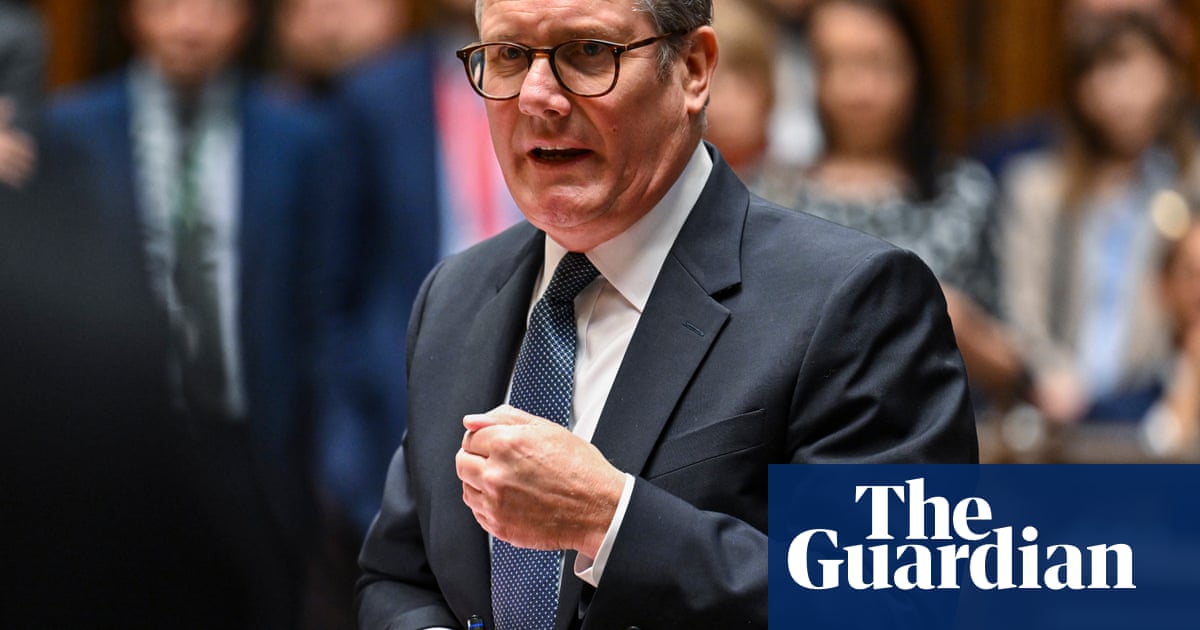No 10 is facing scrutiny over its failure to bring in a new ethics watchdog almost a year after the election, as a new inquiry was launched to examine the seeming lack of progress.
Amid signs that the plans have been kicked into the long grass, parliament’s public administration committee said it was launching an inquiry to push the government on what has happened to its ethics commitments.
It was one of Keir Starmer’s flagship manifesto pledges that the new Labour government would “establish a new independent ethics and integrity commission, with its own independent chair, to ensure probity in government”.
The party promised to “restore confidence in government and ensure ministers are held to the highest standards”, and to enforce restrictions on ministerslobbyingfor companies they used to regulate, with meaningful sanctions for those breaching the rules.
However, there was no blueprint for a commission ready to go when Starmer formed the government last year. It has barely been mentioned by ministers since last July. He published a new ministerial code last year, allowing the independent adviser on ministerial standards to start his own investigations into misconduct without requiring permission from the prime minister.
But the standards regime is otherwise largely unchanged, with no updates either to the Advisory Committee on Business Appointments (Acoba), which is now without a permanent chair after the departure of Eric Pickles. Its interim chair until December is a HR executive from the banking and energy sectors.
Government sources insisted work was ongoing on the ethics and integrity commission, but also suggested that voters care more about tough outcomes in relation to misconduct than about the process of setting up new bodies.
Insiders also pointed to the fact that Starmer has pushed out two ministers who failed to uphold high enough standards under the current rules.Tulip Siddiq resignedas a Treasury minister in January after accepting that the government was being harmed by a furore over her close ties to her aunt, the ousted prime minister of Bangladesh, now accused of corruption. She denies wrongdoing.
In November, No 10 told Louise Haigh to resign as transport secretary for a possible breach of the ministerial code, aftershe did not declare her spent conviction for fraudto the government when she became a cabinet minister.
Since April, the government has twice avoided the question about setting up its ethics and integrity commission when asked about it in parliament.
Pressed on what progress had been made, one Cabinet Office minister, Abena Oppong-Asare, said: “We are restoring confidence in government and the highest standards in public life and have already taken steps to improve probity and transparency, including through issuing a newministerial codewhich highlights the importance of the principles of public life, by strengthening the terms of reference for the independent adviser, and by introducing a new monthly register of gifts and hospitality.”
Georgia Gould, another Cabinet Office minister, said the government was improving standards in public life and was “committed to establishing the right structures to do so”, without specifically mentioning the new commission.
Simon Hoare, a former minister in Rishi Sunak’s Conservative government, said: “Significant commitments have been made to overhaul the ethics regime but we are yet to see much evidence of progress from the Cabinet Office. An upstanding government and good ministers should not fear but welcome a strong, rigorous and independent ethics and propriety regime.
“This inquiry will allow us to push the government on its commitments, ensuring changes are properly stress-tested and scrutinised by parliament.”
The committee said it would be “aiming to understand what progress has been made” on the independent ethics commission. It will look at how trust in government and its officials can be restored and ensured in light of concerns around lobbying and ministerial conduct. It will also study how enforcing high standards could positively affect the public’s trust in government and the wider political system in the UK.
It will look at how effective the existing propriety and ethics structures have proved to be, with critics having long said the landscape is far too fragmented with multiple different bodies responsible for policing different parts of politics, from the parliamentary commissioners on standards, to the Independent Complaints and Grievance Scheme, to the Electoral Commission, the adviser on ministerial standards and Acoba.
The Cabinet Office has been approached for comment.
